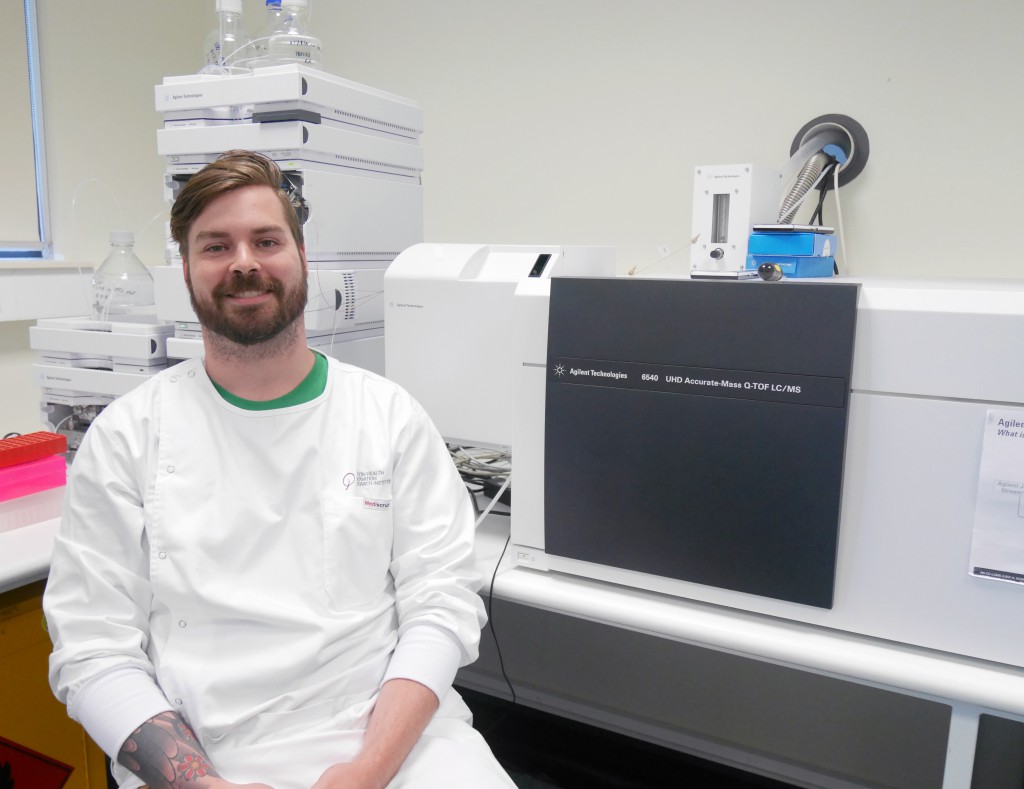The Curtin Health Innovation Research Institute’s (CHIRI) new Technical Support Officer Ben Hunter is likely to have mass appeal among its research team.
Ben’s role involves providing support for CHIRI’s Liquid Chromatography-Mass Spectrometry (LCMS) technologies and prior to his arrival, he’s been busy amassing some impressive experience in their use.
Ben completed his undergraduate studies in Biomedical Science at Murdoch University and has been studying with their Separation Science and Metabolomics Laboratory ever since. He’s due to complete his PhD next year, looking at iron metabolism in critically ill patients by through the identification and quantification of hepcidin and integrating systemic metabolism using untargeted metabolomics.
LCMS technologies have played a starring role in Ben’s research and he’s looking forward to helping grow CHIRI’s already sizable research capabilities through his support role and providing development opportunities in the LCMS area.
“I have special interest in systemic metabolic and biochemical changes that underpin all disease, where LCMS holds a special niche as the gold standard for measurement,” Ben said.
“I’ve been heavily involved in LCMS technologies and their application to health in a clinically relevant and translation focus, including with different vendors, equipment configurations and their uses in different research fields.
“I look forward to helping researchers at CHIRI start the process of getting the same experience.”
With its wealth of academics and researchers collaborating and sharing within its open access institute, Ben views CHIRI as having the perfect climate for the efficient use of LCMS technologies, both through the provision of assets like the Agilent QTOF system it has available on campus and by providing technical support to those who want it.
“Our LCMS platform can help to inform research and hypothesis generation with a really unique ability to look at simultaneous measurement of multiple components in biochemical pathways, metabolism changes or metabolite generation so that researchers can understand what’s happening in their disease and really dig down to the bottom of the causes,” Ben said.
“At the other end, LCMS can provide targeted, clinically relevant data such as biomarker quantification that provides CHIRI researchers with a real world, actionable solution to diagnose or treat disease.”
CHIRI’s focus on age-associated diseases also provides prime grounds for the use of LCMS technologies.
“Advancing age is a significant risk factor for many diseases, and the underlying mechanisms involved in ageing are varying, complex and often lead to diseases that at the surface level are seemingly unconnected and have no apparent overlapping pathologies,” Ben said.
“Age also effects people from different populations in very different ways, as well as environmental factors such as diet, residue exposure and climate.
“All variations effecting our age phenotype are reflected most deeply in the underlying biochemical and metabolism systems, as essentially the very last step in the ‘omics’ chain is the final expressions of peptides, proteins and small molecules.
“I hope to help the researchers here at CHIRI delve into this layer, and hopefully start identifying age-related disease mechanisms and biomarkers.”
